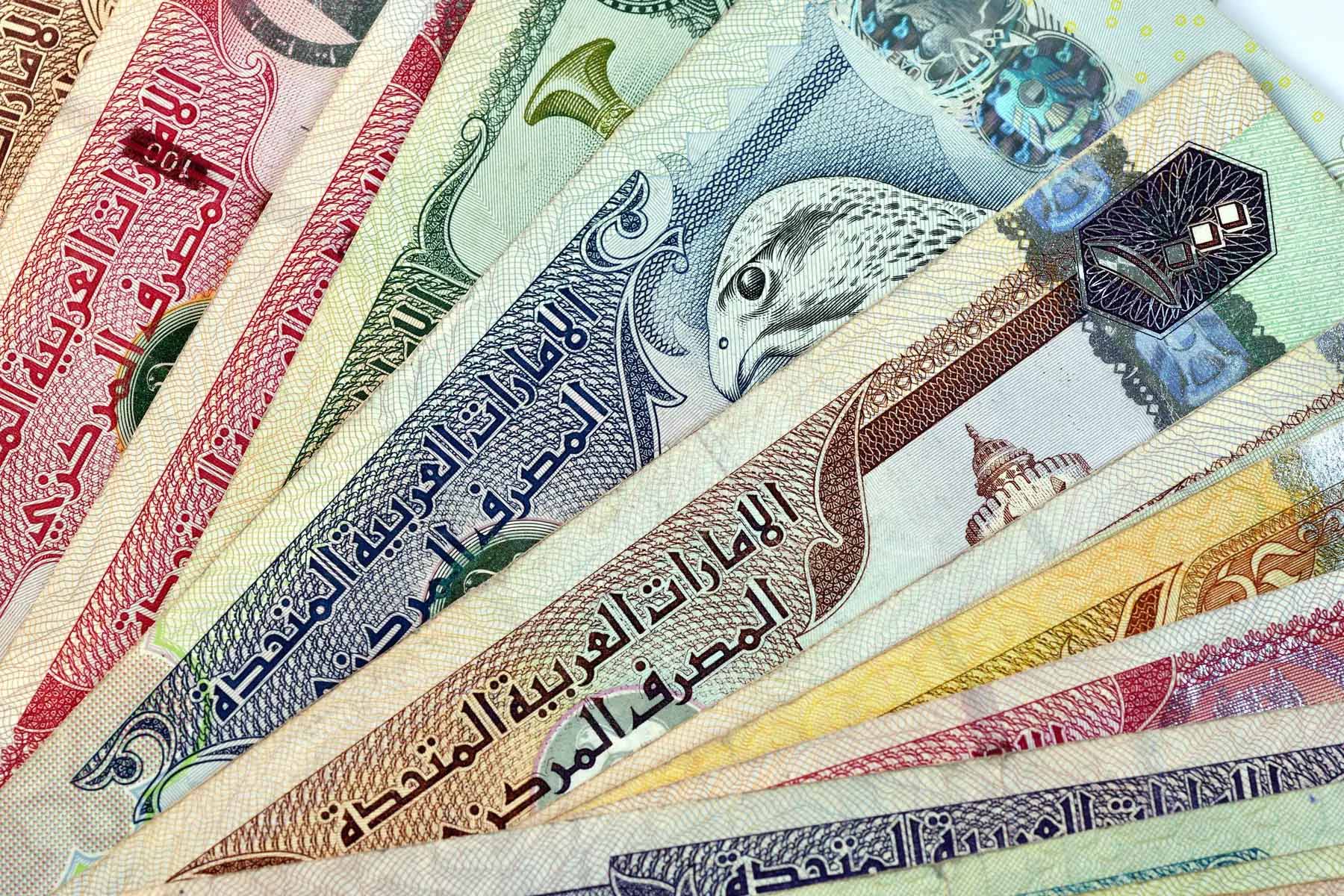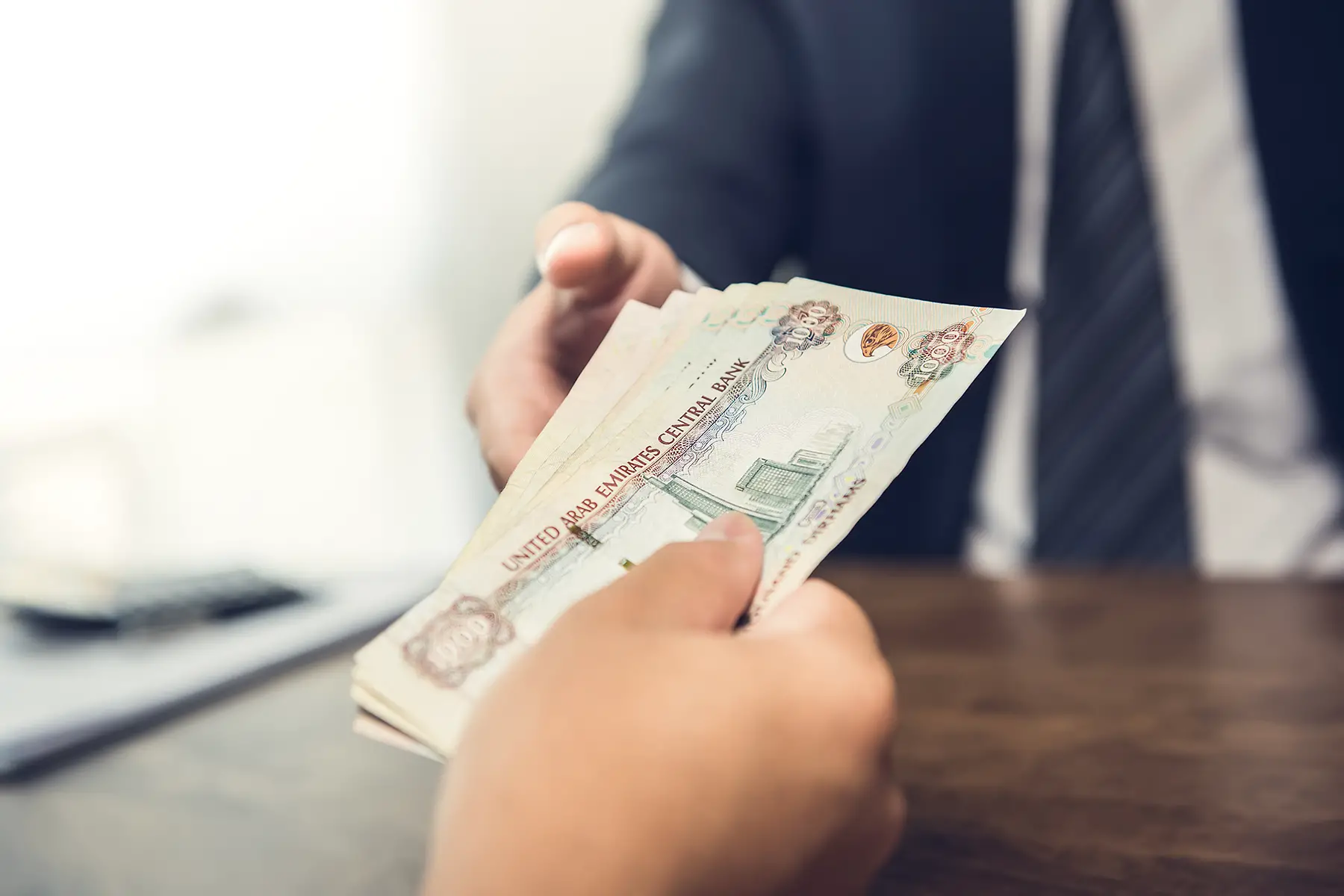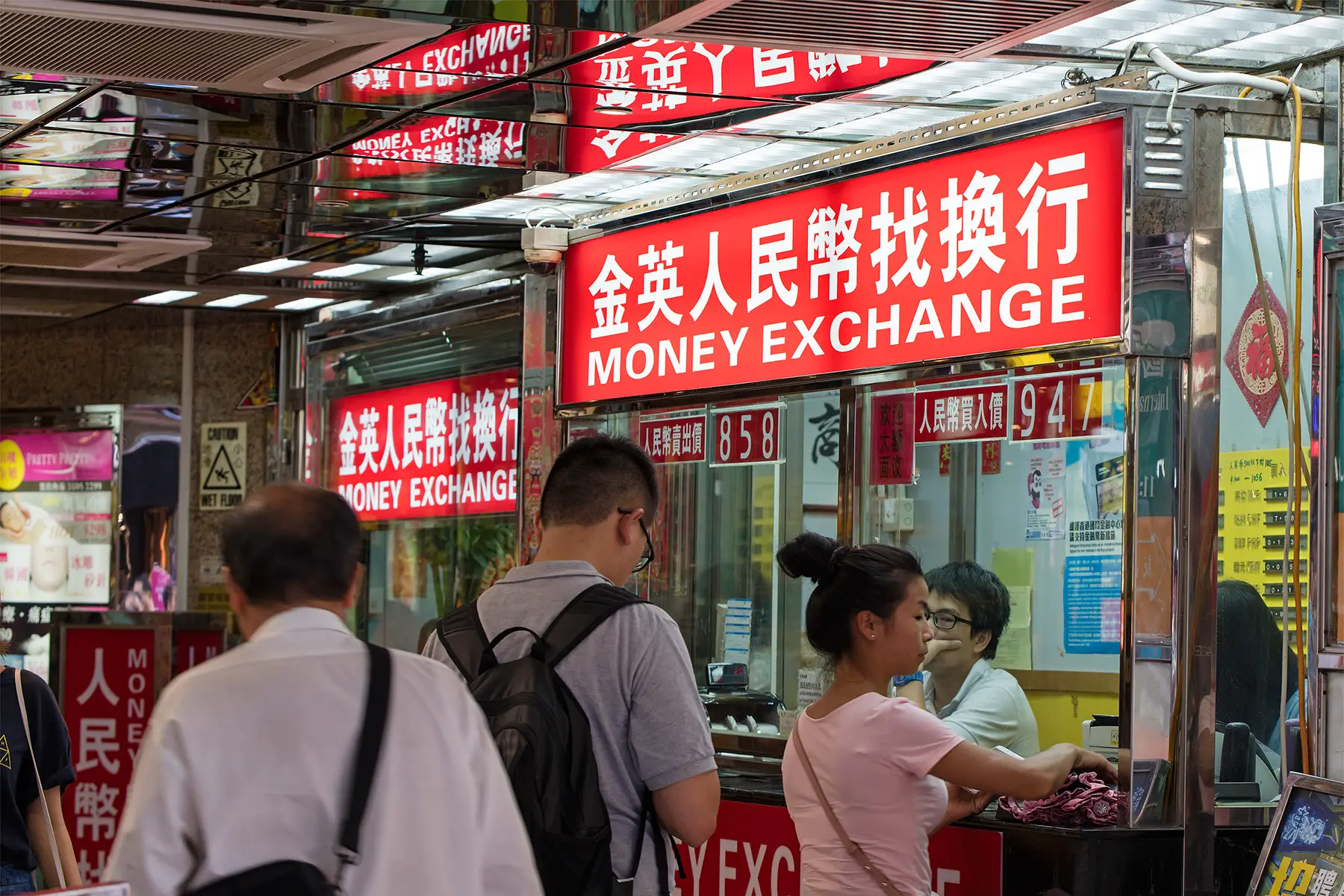With its high mix of expat residents, outward remittances from the UAE have far-reaching effects. According to the UAE Central Bank, this is benefitting families as far afield as India, the Philippines, the United Kingdom, and the United States. As such, the market for international money transfers in the UAE is extremely well-developed. Banks, exchange houses, and digital transfer services all operate within the country, as do more informal – and illegal – channels.
This article provides everything you need to know about making international money transfers in the UAE. It includes the following information:
Wise
Are you relocating to the UAE? Then you need a fast and secure way to move your money to the Middle East. Wise is a global leader in online international money transfers, letting you move money at an exchange rate up to 8x cheaper than your bank. Whatever your personal or business needs in the UAE, Wise can make your money go further.
International money transfers in the UAE
Expats comprise nearly 90% of the UAE’s population, so it’s no surprise that the Middle Eastern country is the second-largest contributor of remittances to other countries; according to the World Bank’s Global Knowledge Partnership on Migration and Development. Central Bank data shows that outward personal remittances reached AED 169.2 billion (about US$46.06 billion) in 2018; an increase of 3% over the previous year. The UAE’s remittance corridor to India is the biggest, with Indian expats sending 34.2% of all remittances in the last quarter of 2018, followed by Pakistanis and Filipinos.

There are more than half a dozen different ways to send money from the UAE, including international money transfers from your bank account to the receiving party’s account, online payments via third-party services, and cash services that can be made over the counter at local exchange houses. Before you make international money transfers in the UAE, however, it’s a good idea to do your research, as you could literally be giving away extra money in terms of high fees.
In spite of the wide variety of legal ways to make money transfers in the UAE, there are a number of informal services, such as the traditional hawala and hundi contracts. While the Central Bank has attempted to register some of these brokers in the past, many services skirt under the radar, therefore potentially compromising your money. Therefore, it’s worth remembering to check a transfer system’s license, and asking for an official receipt when sending any money overseas.
In summary, depending on where you want to send money, you should compare exchange rates, transfer fees, and processing times in order to make an informed choice.
Online international money transfer services in the UAE
A number of online services now offer international money transfers in the UAE. The launch of Wise into Abu Dhabi in 2019 expanded the market considerably. Other global players offering international payments in the UAE include international platforms such as PayPal, CurrencyFair, or Moneycorp, which allow customers to receive dirhams in their overseas bank accounts.
Meanwhile, the country has seen a rise in local startups such as Now Money and Denarii Cash. The former caters to unbanked expats via its smartphone app, while Denarii Cash expects to roll out services in 2020. The space is likely to get even more crowded, with global companies such as Azimo expressing interest in the market.
Overall, using online services to make international payments in the UAE is much more economical, working out to up to eight times cheaper in some cases. Typically, such services transfer money at the inter-bank rate, while charging an upfront fee. Transfers are affected within minutes, but some companies may take longer.
For more information, check out these international money transfer options:
- CurrencyFair offers money transfers to over 150 countries and has exchange rates up to eight times cheaper than the banks, helping you avoid excessive bank fees.
- Wise is an international money transfer provider available in 59 countries that offers transfers between cross-border bank accounts up to eight times cheaper than traditional banks.
- XE is an online platform for exchange rates and international money transfers. They support more than 100 currencies and transfers to over 170 countries.
You can also use online comparison tools to save on fees, obtain the best exchange rates, and find the cheapest option for your international money transfers.
Money transfers via banks
All licensed banks offer international money transfers in the UAE. Because of their ease and convenience, bank transfers remain one of the predominant ways that expats send money home. Furthermore, account holders can execute a transaction from their account within minutes when using internet or mobile banking.

However, international money transfers in the UAE are considerably more expensive when sent via a traditional bank account. This is because banks set their own exchange rates; which are different from the interbank rates seen on xe.com or Google.
In addition, banks may often charge an additional service fee for remittances. Thanks to relationships with correspondent partners in other countries, several banks in the UAE do not levy upfront service fees for transfers in the destination country’s local currency. However, customers will very rarely find bank rates working in their favor. In other words, you are paying a premium for convenience.
Banks’ service fees for international money transfers in the UAE can range from zero to AED100, not including VAT. International bank transfers can take up to five working days.
International money transfers with traditional bank services
Some expats prefer face-to-face banking transactions. If that’s you, simply head to your branch, where the teller will give you a form to fill out. You can either hand over the money in cash or it can be debited directly from your account.

Be aware, however, that personal visits to a bank may incur higher service charges when compared to international payments in the UAE made via online or phone banking.
International money transfers through mobile or internet banking
Sending money overseas is quick and convenient when using mobile banking in the United Arab Emirates. Simply open the app or log onto your internet banking account. Then head to the section for international money transfers. Note that banks will typically offer both domestic and international transfers.
You may be required to set up a new payee before you can effect a transfer. Once that’s done, simply follow the instructions. Also, remember to keep the recipient’s account details handy. In short, you’ll need the following items:
- Recipient’s full name (as on the account)
- Their bank’s name address and branch
- Their bank account number
- Applicable SWIFT or IBAN codes (depending on the country)
If it’s your first time making international money transfers in the UAE, a bank official may ring you to confirm the details. Indeed, such procedures are quickly becoming the norm with the country’s biggest banks.
How to receive international payments in the UAE to your bank account
In order to receive an international money transfer in the UAE, simply provide the sender with your full name, bank details, and the account number. UAE bank account numbers are standardized in line with IBAN format and comprise 23 characters, beginning with the letters AE.
Wire transfers in the UAE
About 75% of expats use wire transfer services when making international money transfers in the UAE. They send money overseas via one of the 125 money exchanges or cash houses, which in turn rely on the SWIFT banking network, or on international wire transfer companies such as Western Union or MoneyGram. About AED 30.4 billion in remittances was wired through exchange houses in the fourth quarter of 2018, compared to the AED 9.5 billion transferred via banks.
Such exchange houses are typically located in malls and on high streets across the UAE. Look for companies such as Al Fardan Exchange, Al Ansari, Al Rostamani Exchange, LuLu Exchange, UAE Exchange, GCC Exchange, and Wall St Exchange. Such companies typically offer a better deal than banks, as World Bank data shows: for the third quarter of 2019, the total average costs of sending $500 (AED 1,835) from the UAE to India, Pakistan, the Philippines, and Egypt were 1.53%, 1.28%, 1.34%, and 1.94% respectively.
Making international payments in the UAE through an exchange house is safe and easy. However, for the best rate and quickest transfers, you need to have the amount in cash with you.
How to make a wire transfer in the UAE
Simply walk up to the store, fill out a form, and hand over the cash. You’ll be asked to show a government-issued photo ID, typically your Emirates ID – or if you don’t have it, your passport. You will also need to provide the recipient’s full name and address. You’ll then be given a receipt with a Money Transfer Control Number, which the recipient will need to fill out in a different form when they pick up the funds. The transfer usually takes only a couple of minutes, but it may take longer depending on the country you are sending money to. You can usually track your transfer online.
You can usually make international money transfers in the UAE straight from your credit card, but these may take longer; up to five working days. However, for certain services, such as Western Union and MoneyGram, using a debit or credit card can speed up the time taken to send the money.
Finally, it’s worth noting that dedicated services such as Remit2India offer faster processing times than general players.
Foreign exchange brokers in the UAE
A number of foreign exchange brokers operate in the Emirates, and expats can rely on them for better currency rates. There are a number of factors on which to evaluate a currency broker when making international money transfers in the UAE. Among them are regulatory approvals (from the UAE Central Bank, Dubai International Financial Centre, or Abu Dhabi Global Market as well as international regulators in your home country), international money transfer costs in the UAE, trustworthiness, customer support, and online tracking.

It’s worthwhile making a few calls and asking around, as the savings on foreign exchange rates can be substantial. The foreign exchange market is extremely competitive and some firms quote the interbank exchange rates to get your attention, and later add extra charges or increase their margins. Therefore, make sure you get a quote upfront and ask if there are any associated international money transfer costs in the UAE.
Once you choose a currency broker, you typically need to open an account. This requires copies of your passport and residence visa. Once your account is set up, you can begin trading right away online. First, pick your currency pair and check the spread or conversion rate. Such rates vary considerably, so you’ll want to wait a day or two if possible.
When you’ve got the rate you want, lock in your transfer conversion rates and send the money to your FX broker. They will then forward the money to the recipient’s bank account within one or two business days. Again, you must have all the beneficiary’s details, such as their bank account number and SWIFT/IBAN.
Expats can choose from a number of currency brokers when making international money transfers in the UAE. These include:
- ADSS
- HiFX
- IronFX
- OFX
- Saxo Bank
- WorldFirst
Considerations when making international money transfers
There are a number of factors for expats to consider when sending or receiving international payments in the UAE. For instance, you will need to think about international money transfer costs in the UAE, convenience, and licenses. as well as the country you are sending money to; depending on different companies’ local affiliations. Below are some things to consider.
Costs
You will always need to pay a premium when making international payments in the UAE. This might take the form of an upfront fee, or it may be reflected in the exchange rate. If you are not being offered the interbank rate, the exchange house is making money on your transaction. Therefore, shop around to compare international money transfer costs in the UAE.
Exchange rates
Currency markets are open 24/7, and as such, rates fluctuate all the time. However, depending on providers’ own internal policies, currency conversion rates can vary wildly. Forex brokers generally use the interbank rate, while banks and exchange houses set their own tariffs.
Payment methods
You can make international money transfers in the UAE in cash, via a bank instruction, or with a credit card. In addition, most transfers can be made via smartphone apps.
Pickup methods
International payments in the UAE can usually be made to recipients’ bank accounts. However, many exchange houses offer the option of a cash delivery on the presentation of a secure Money Transfer Control Number.
Transfer time
Consider the timing of the transfer. Rates tend to rise and fall depending on a number of factors, but you may find it more expensive to send money overseas around a festival. Additionally, urgent transactions may require you to pay more or use an online service to make sure your money gets where it needs to go fast. On the other hand, if you can wait a little longer, you may be able to choose a cheaper, different option, or you might be presented with a different rate.
Customer service
Since foreign exchange markets are open around the clock, you should be able to expect customer service along similar lines.
How long do international money transfers in the UAE take?
Given that transfer times vary depending on the method used and the country to which the money is being sent, it’s always best to ask the bank or exchange house exactly when the recipient can expect the money. All things considered, you can expect the transaction to take anywhere between a few minutes when using an online service, to five or seven business days via traditional banking routes. Consequently, it makes sense to shop around for the best rate and transfer time.
Useful resources
Finally, here is a list of important websites and web pages that provide useful information on the subject of international payments in the UAE:





